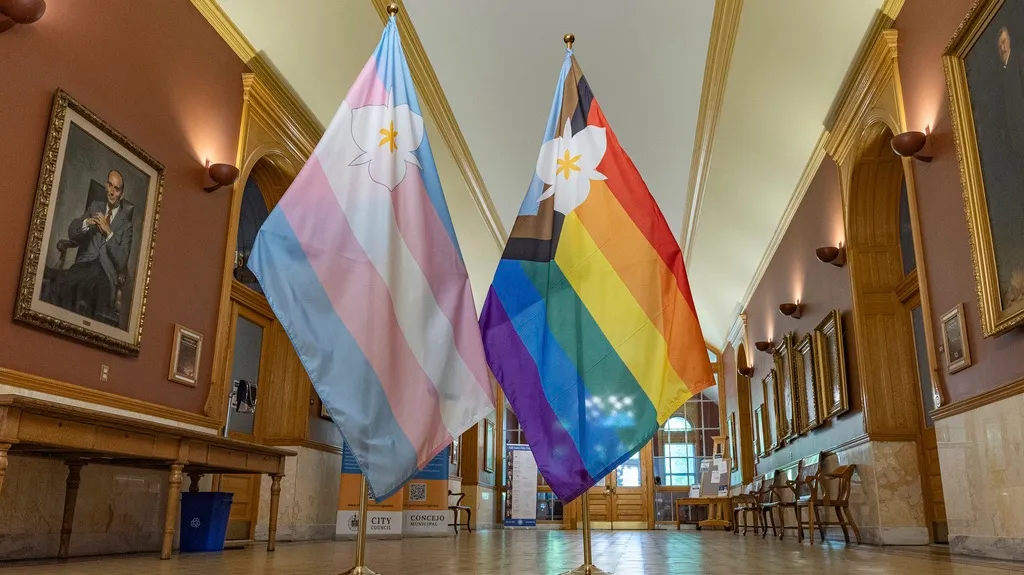September 15, 2010
Australia to Allow Transgender Soldiers
Kilian Melloy READ TIME: 3 MIN.
While the United States grapples with the question of allowing openly gay soldiers to serve in its armed forces, the Australian has removed a final barrier to admitting sexual minorities into the ranks of its servicemembers by striking down a ban on transgendered troops.
Australia has allowed gays to serve openly for eighteen years. The ban on transgendered soldiers ended on Sept. 13 with a directive issued by Australian Defense Force head Angus Houston, reported Australian news site Crikey.com on Sept. 15. The site said that the change was implemented as a result of a transgendered soldier being dismissed from the service.
Air Chief Marshall Houston also issued a directive, telling commanding officers to "manage ADF transgender personnel with fairness, respect and dignity" and to "ensure all personnel are not subjects to unacceptable behavior," the site reported. New policies regarding transgendered servicemembers will be issued in December.
Most Western nations have long since discarded their bans on gay and lesbian troops, and a number of nations globally have also set aside bans on transgendered troops. Canada, Spain, and Thailand are among the nations where transgendered troops are allowed to serve.
Progress in the United States on allowing openly gay individuals to serve in the military has been dramatic in the sense that three-quarters of Americans support repealing the law that bans open GLBTs from the military. Repeal of the law, known as Don't Ask, Don't Tell has been a complicated affair. The law came about in the wake of an unsuccessful attempt by then-president Bill Clinton to integrate the military in the early 1990s. Current president Barack Obama has sworn to see the ban lifted, but prefers to allow Congress to repeal the anti-gay law.
The military has undertaken a year-long review process on how to go about dismantling DADT. Meantime, a bill that would end the ban is before lawmakers. The courts are involved in the issue separately, and a federal court recently ruled DADT to be unconstitutional.
Critics in the U.S. insist that morale, military discipline, and even the health of troops will be imperiled if gays are allowed to serve openly, as opposed to the current system, in which gays may remain in the service only so long as they do not declare their sexuality.
Some critics of the proposed repeal claim that the military would become a circus of gay sex and even gay rape if the ban is lifted. Others warn that the military would lose most of its heterosexual personnel.
But proponents of the ban note that similar predictions were made in other nations that set aside their own anti-gay bans. No such disruptions occurred in those nations' militaries. Moreover, many gays and lesbians are out to their colleagues in arms, with no ill effects to morale or unit cohesion resulting.
Still, anti-activists insist that there are dangers to allowing gays to serve openly. Eugene Delgaudio, who claims to have gathered a million signatures on a petition against the repeal of DADT, went so far as to warn that AIDS would be rampant among the ranks if openly gay servicemembers and heterosexual personnel were to share showers, reported gay blog JoeMyGod on Sept. 15.
"Soldiers share very close quarters and are under a great deal of stress while serving on the front line," said Delgaudio. "The sudden change in military structure would add distractions from worrying about accidentally contracting AIDs by sharing showers and quarters to unwanted sexual advances and flamboyant displays of homosexual 'pride.' "
Added the anti-gay activist, "Would you be able to perform your job if you were constantly having to worry about contracting a deadly disease? It's vital our soldiers are given every advantage possible, not given something to worry about."
HIV, the virus that causes AIDS, can be transmitted through unprotected sexual activity and contact with blood. It is not, however, contracted through casual contact.
Kilian Melloy serves as EDGE Media Network's Associate Arts Editor and Staff Contributor. His professional memberships include the National Lesbian & Gay Journalists Association, the Boston Online Film Critics Association, The Gay and Lesbian Entertainment Critics Association, and the Boston Theater Critics Association's Elliot Norton Awards Committee.




